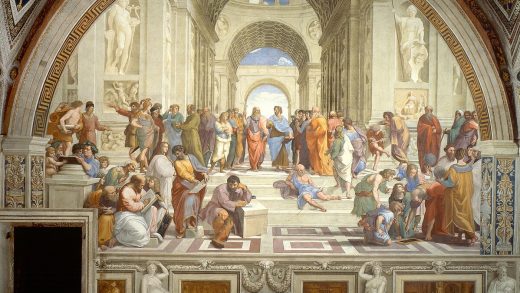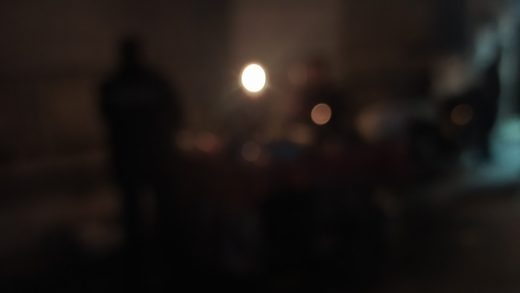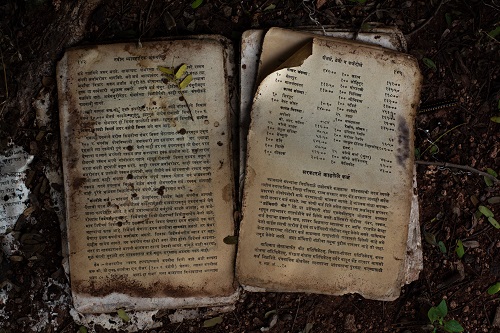I’ve found over the years that my long-winded rants are an unfortunate side effect of frustration that mounts up over time, and the world would be better off if they were left unshared, as they often tend to lack both coherency and a point. But you can’t always be the perfect specimen, nor refuse to indulge impulse on every occasion. So, here we are now, bearing witness to what could arguably be described as a mental breakdown episode, posed in an aura of self-condemning exoneration to make it more palatable.
After all, this is what we humans do, isn’t it? We put a graceful face on everything, even our follies, and hope no one catches us in the lie. Such convenient falsehoods we spin around. Many don’t even realize this; perhaps it’s the most disconcerting part of the whole ordeal. They don’t set out to lie, and they certainly aren’t actively trying to deceive you — for the most part. If you catch someone in a lie, it probably means that they’re also lying to themselves, because how else would any of us function?
As mankind continued to flourish under the guise of this tenuous civilization, different ideas—differing ideas— began to form at a pace hitherto unthought of. Society grew disproportionately large and complex, and the role of man in it all, which had once been the simple choice between cultivating life or ending it, burst forth into a thousand multi-hued weaves of potential. Where once you would have been a farmer, a carpenter, a cobbler, a soldier, or a merchant, you are now a data analyst, a lawyer, a programmer, and, god forbid, a social activist. A revolutionary thinker. A contrarian influencer. A displaced philosopher. An existentially crippled, self-loathing, pitiful shell of a man wallowing in his own sense of insecurity and confusion.
How do you even sort through it all? How do you answer life’s biggest questions, now that you find yourself in the particular position of having the means to ask them? Are the answers to man’s biggest enigmas found in philosophy, which purports to be a science dedicated to understanding life, or as the more run-down, mentally exhausted of us would refer to it, the practice of at least attempting to make sense out of this abysmal mess?
And if indeed you decide to give it a go, who or what do you approach? Eastern philosophy, with its deep sense of spiritual respect toward nature? The ancient teachings of Buddhism, the path to enlightenment? The school of Shinto from Nihon? Daoism? What about further out in the West, where Islamic philosophers have toiled for hundreds of years to come up with an extensive body of work underlining the most fundamental forces of truth that drive our universe? Or so they claim, at least.
In case none of those are particularly up to your subjective preferences — your predisposition to view life and existence in a certain light — then perhaps Western philosophy, with its insistence on divorcing pragmatism from dogma, might finally deliver you from this pain of confusion. There, we have existentialism, tied heavily into individualism, that wants to free the soul of man from the washed-out, ignorant ways of thinking that dominated the dark ages of pre-Enlightenment. We have rationalism, empiricism, pragmatism, and any number of favorable -isms you could possibly think of. The choices are limitless.
And if you want to make it simpler for yourself, just find a group that you relate to the most and jump on the bandwagon. At the moment, traditionalism and conservatism are going up against liberalism and post-modernism, and the battles of wit, intellectual spars, and pissing contests are every bit as juicy as you’d imagine. Never be so cynical as to assume that these people would give you anything but the truth, making valid arguments backed up by empirical evidence and sound logic. Never doubt that their statistics are infallible, their way of thinking precise, and their hearts in the right place. Most importantly of all, dare not, even for a moment, think that a system predicated on expanding the very tribalism that has been the source of all human suffering would not ultimately compel all of these intellectuals to embrace one extreme, one dogma, and one convenient way of thinking to win the war.
Don’t mistake their earnestness, their ferocious sense of duty, for pathological posturing. Nod your head when they lambast ideology and ideologues, and don’t even question it when they, too, inevitably single out a school of thought, affix to it almost every problem facing the world, and roll their eyes at this ignorant, brainwashed generation, designing to compare them to the worst mongerers of human catastrophe from a time not so long ago.
There is a plethora of reasons for human conflict and disagreement, reasons you can perfectly wrap your head around under the right pretext. Greed, the need for domination, and a pattern of savage subjugation that we don’t seem to escape; a cycle of violence that we can’t seem to evolve past. And who is to decide what is right and what is wrong? What is morality, if not another frustrating rabbit hole for the mind, a storm to be weathered by the intellectually capable, the philosophically adept?
Moral philosophy is one of the most complicated manifestations of human cognition and understanding. Would you believe in ethical objectivity, which poses there are inherent moral truths hacked into the very foundation of this universe, regardless of the context in which we acknowledge them? Would you believe in Utilitarianism, the theory that posits the path forward should be the one that maximizes human happiness and contentment? What about the increasingly popular moral relativism, suggesting morality is fundamentally a matter of perspective, culture, and viewpoint?
The complexity of this subject ties rather poetically into the decline of the intellectual at display in our modern world. At some point, the very practice of divination turns into an exercise in futility, a superfluous dance with ideas that not only fails to yield an effective solution, a reasonable compromise, but further confounds an already impossible enigma. And so, the intellectual slowly turns into a paradoxical manifestation of all the ideas swirling inside of his head, bequeathing wisdom with one hand and undermining its validity with the other. The intellectual scorns ideology, but unironically embraces it when it serves his purposes. He adheres to the laws of democracy, campaigns for free speech, and even freedom of expression for the individual, and yet when that same individual is guided by forces other than his hand to act in a way that doesn’t align with his beliefs, he raises a cry for help and uses every measure in his disposal to fight that manifestation of chaos — one of his own making — to the bitter end, even by means going against the freedom he preaches.
Battle not with monsters, lest you become a monster yourself. Is it simply referring to the dangers of fighting villainy with means that turn you into a villain, or is it speaking to another truth hidden in the subtext? Will you fight words with words, swords with swords? Will you answer death with death, cruelty with malice, and intolerance with prejudice?
Moral doctrines blur the lines of honor and nobility, philosophication conceals the very evil the idealist sets out to fight, and catechism invites the mind to the human-susceptible practice of self-deception and unconscious hypocrisy. What good is spending countless hours interpreting the words of a holy book, inferring the righteousness of compassion and mercy, only to spit in its face and let loose your baser instincts in the face of real conflict? Because if we were to believe in those simple ideals — truly believe in them — then we wouldn’t be led astray by the mere complexity of a situation, or this treacherous, wicked conception of the human mind called Expediency.
We see then, much to our dismay, the fall of the prophet, the decay of the idol, the rotting corpse of the would-be intellectual leader, succumbing — despite all of his understanding — to the same mystifying adversary that tends to manipulate the average man. And so, dear friends, history continues to repeat itself, time without end.




